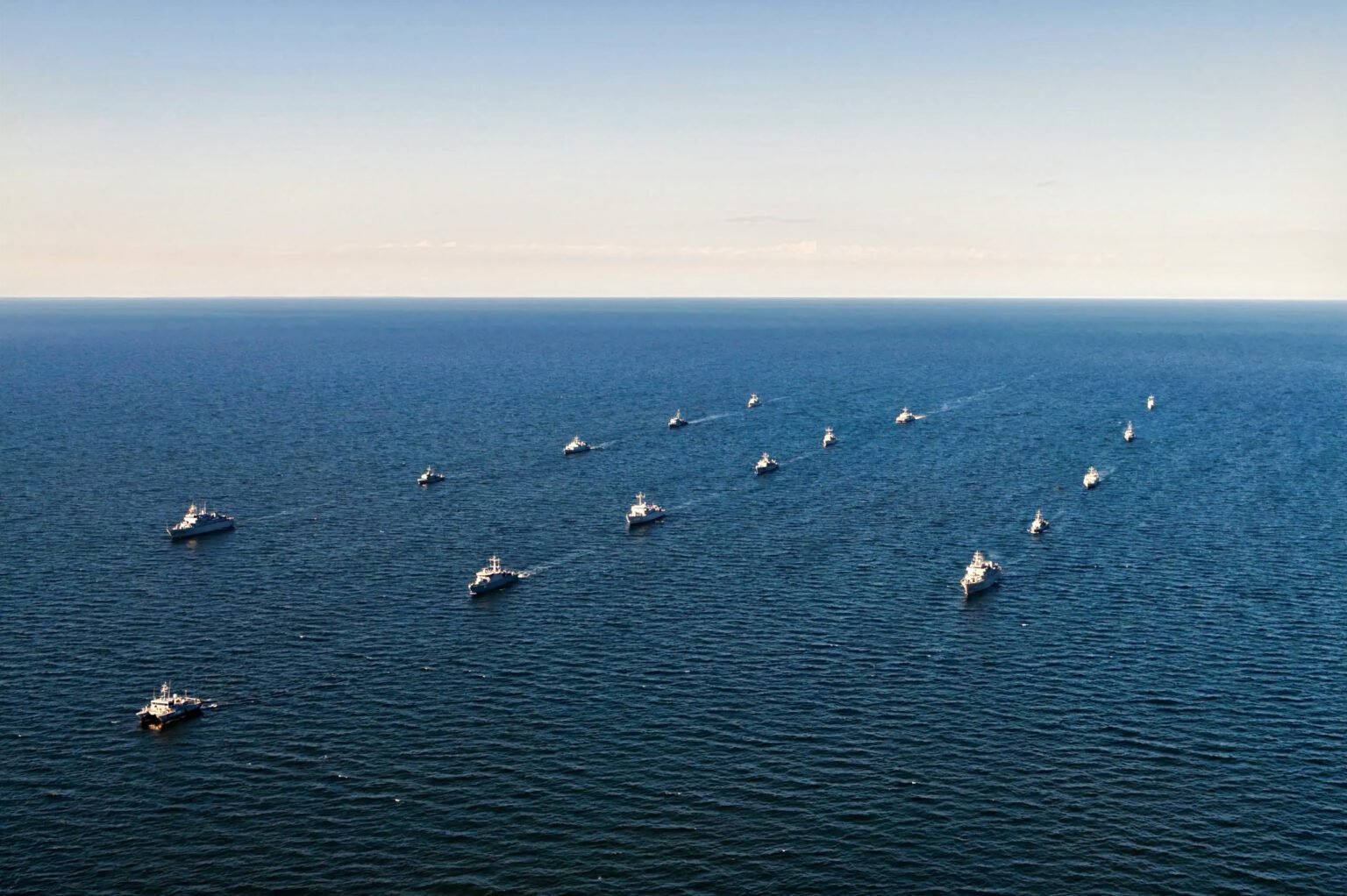NATO is currently conducting one of its largest-ever military drills in the Baltic Sea, BALTOPS 22, with the participation of 14 countries, including Sweden and Finland, which seek to join NATO. In reaction, Russia, too, carried about a military drill in the Baltic, 64 km from its nearest military base.
Typical of other NATO military exercises, BALTOPS 22 is aimed at safeguarding freedom of movement and navigation in the Baltic Sea region. It includes amphibious, artillery, anti-submarine, air defense, demining, explosive ordnance disposal, unmanned underwater vehicle detection, and medical response exercises. However, more important on the exercise agenda was its integration of space applications through the NATO Space Centre. While this does not set a precedent with several previous exercises integrating space, it takes on particular significance this time given the critical role of space battles in the Ukraine War.
Arguably, the Russo-Ukrainian war has made expectations of the future of warfare and the role of space in it real. When Russia stormed Ukraine, it didn’t only carry out air operations to destroy Ukrainian air defenses but also launched full-scale attacks on the Ukrainian telecommunications infrastructure, including the terrestrial Internet, to move freely on the ground and influence the communications of the Ukrainian forces. At this stage, however, and in reaction to a Ukrainian request, the spacecraft engineering company SpaceX which is owned by Elon Musk and operates Starlink project, announced introducing a strategic service that served as an important test for the satellite internet project where it provided accurate satellite photos of the deployment locations and movements of the Russian army as well as a range of communication services. Perhaps the most notable uses of this service in the war were targeting the Russian cruiser Moskva that was accurately pinpointed and targeted and directing the drones to target Russian movements and equipment.
On social media, there has been a duel between Elon Musk and Russian President Putin, but the biggest duel came from China, which lodged a complaint to the United Nations Committee on the Peaceful Uses of Outer Space, protesting against the US militarization of space and Starlink’s plan to release a total of 12,000 satellites (of which 2,000 satellites have been released) operating in low-Earth orbit, which gives the United States leverage, particularly these satellites primarily serve the US army and don’t provide civic services. But beyond this, China has other concerns, including the United States’ monitoring of its moves in the China Sea and supporting the operationalization of the US fighter F-35A with telecommunication operations becoming 30 times faster than they are now with current military satellite systems. Moreover, these services, whether provided by SpaceX or other private and civilian US space companies, enable access to other military assets, including uncovering China’s missile silos, meaning exposure of China’s infrastructure to the United States.
In effect, China’s complaint highlights several significant advances, including the growing civil-military relations and the private sector’s collaboration with the US military, a new aspect that adds up to civil-military relations, particularly in the field of defense development. Another point is the technological contribution made by the private sector, which was once a subject of controversy but has now become a fait accompli. In fact, one of the main reasons for this controversy goes back to China itself, which was accused of free riding on US-led technological progress. Therefore, there has been a debate over how to limit China’s access to US technology amid lack of laws regulating space-related activities.
Relatedly, in Russia’s war on Ukraine, the US sanctions included cutting Russia off from US technology, especially the electronic chips that are used in directing many strategic weapons such as missiles. In response, the Russian President asked his government to work on bridging this gap towards achieving sufficiency. Indeed, these sanctions will also impact the work of the International Space Station (ISS), in which Russia is a partner, along with the United States, Canada, and European Union countries. For its part, Moscow announced banning the export of missile engines to the United States, noting that this would affect the ISS’ work, whose orbit needs to be corrected 11 times a year, which could eventually cause it to fall down into the sea or onto land, resulting in a potential disaster.
Several months before the outbreak of the Ukraine war, in mid-November 2021, Moscow had carried out an experiment in what was arguably considered a space attack simulation. It carried out a missile test shooting down one of its old satellites Zelina-D, which the Western powers considered a space disaster, posing a threat to the ISS. The US Assistant Secretary of State for International Security and Non-Proliferation Christopher Ford stated that Russia “aims to restrict the capabilities of the United States while clearly having no intention of halting its own counter-space programme”. In return, Russian Defense Minister Sergei Shoigu described the test as a “gem”.
As such, space battles have become increasingly dangerous. While they can serve as a deterrent factor and an added value to Western powers (given their role in that war), they can also give rise to disasters whose impacts on Earth would be difficult to avoid, much less the space militarization issue which the great powers engage in mutual recriminations on, which in turn will give rise into arms races. So, this war is not only about satellites but about space armies as well. In December 2019, the establishment of the US Space Force was announced and later its structure and military ranks were declared. On the day of its inauguration, former US President Donald Trump said that space has become “the new war-fighting domain”. For its part, Russia considered the step as a challenge from the United States and perhaps Moscow’s tests to destroy “Zelina” came as an objection from its side. More dangerously was the warning of the British defense minister of the possibilities of using space to launch nuclear strikes.
Perhaps this current development helps in highlighting the Arab situation when it comes to space, with several Arab countries such as Saudi Arabia, the United Arab Emirates, Egypt, and Bahrain getting into the satellite acquisition field. While the progress made by Arab countries in this field is still limited, it is just a single step in a thousand miles journey, particularly if we look at Rwanda, which seeks to launch 320 satellites into space. Until recently, many Arab countries used to purchase aerial imagery services to conduct surveillance and explore movements that pose a threat to them, including border control to monitor cross-border terrorist organizations. Furthermore, there have been several US applications of space services in the Syrian war and in the Yemen war, too, and they proved to be quite costly.
Aside from conflicts of the major powers over space, the tremendous services that satellite applications provide in various fields require developing interest in this field more than it is now.












